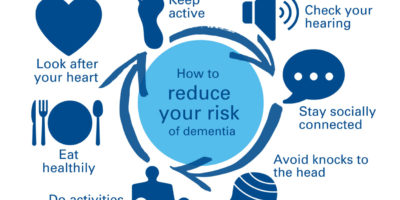Introduction
Cognitive Stimulation Therapy (CST) is a non-pharmacological intervention that aims to improve cognitive function, social interaction, and overall well-being in individuals with dementia. Developed by Professor Aimee Spector and colleagues at University College London, CST has been gaining attention as a cost-effective and promising approach to managing the cognitive decline associated with dementia. This essay will discuss the rationale behind CST, its key components, evidence supporting its efficacy, and implications for healthcare professionals and caregivers.
Rationale for Cognitive Stimulation Therapy
Dementia, a progressive neurological disorder, affects millions of people worldwide and is characterized by cognitive decline, memory loss, and changes in behavior. While pharmacological treatments can help manage some symptoms, they often come with side effects and limitations. As a result, there is a growing need for non-pharmacological interventions that can enhance cognitive function and quality of life in individuals with dementia. CST was designed to address this need by providing a structured, stimulating, and engaging environment that supports cognitive and social engagement.
Key Components of CST
CST is typically delivered in group settings, allowing participants to engage in various activities designed to stimulate their cognitive and social abilities. These activities often incorporate the following components:
Reality orientation: Providing information about the date, time, and location to help participants maintain a sense of the present moment.
Reminiscence: Encouraging participants to share personal memories and experiences to foster social connections and validate their sense of self.
Cognitive exercises: Engaging in activities such as puzzles, word games, and problem-solving tasks to enhance cognitive function.
Creative activities: Facilitating art, music, or storytelling activities to promote self-expression and cognitive stimulation.
Multisensory stimulation: Incorporating activities that stimulate the senses (e.g., touch, smell, taste) to enhance cognitive engagement and emotional well-being.
CST sessions are typically facilitated by trained professionals, who ensure that activities are tailored to the individual’s cognitive abilities, preferences, and interests.
Evidence Supporting CST’s Efficacy
Numerous research studies have demonstrated the effectiveness of CST in improving cognitive function, mood, and quality of life in individuals with mild to moderate dementia. A systematic review conducted by Woods et al. (2012) found that CST led to significant improvements in cognitive function, as measured by the Mini-Mental State Examination (MMSE) and the Alzheimer’s Disease Assessment Scale-Cognitive Subscale (ADAS-Cog). Additionally, participants in CST programs often report improvements in social interaction, communication, and overall well-being.
Implications for Healthcare Professionals and Caregivers
Given the growing evidence supporting the efficacy of CST, healthcare professionals and caregivers should consider integrating this intervention into their dementia care plans. CST offers an engaging, person-centered approach that can improve cognitive function and overall quality of life, potentially reducing the need for pharmacological treatments and associated side effects. Moreover, CST can serve as a valuable tool for fostering social connections and reducing isolation among individuals with dementia, which is critical for maintaining emotional well-being.
Conclusion
Cognitive Stimulation Therapy, developed by Professor Aimee Spector and colleagues, offers a promising, evidence-based intervention for individuals with dementia. By incorporating a range of cognitive, social, and multisensory activities, CST provides an engaging and stimulating environment that can improve cognitive function, mood, and overall well-being. Healthcare professionals and caregivers should consider integrating CST into their dementia care plans to enhance the quality of life for individuals with this progressive neurological disorder.




Leave a Reply